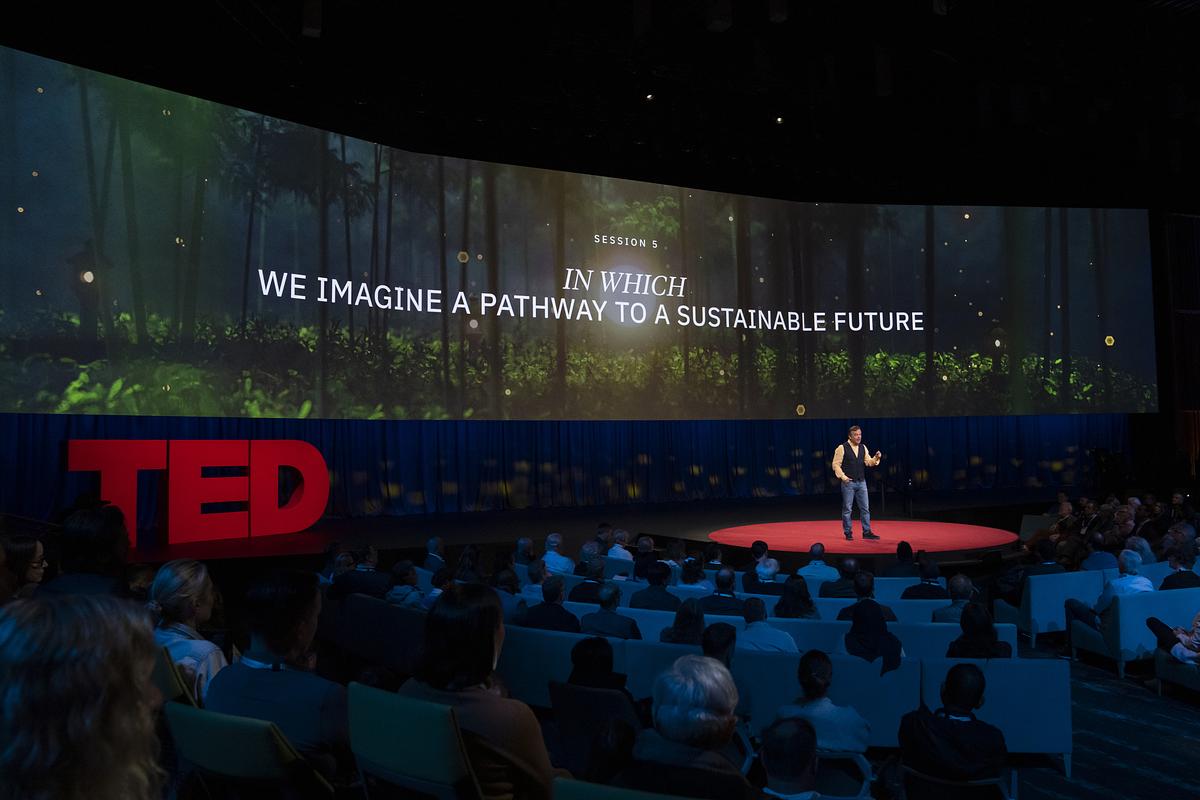
Head of TED Chris Anderson speaks at Session 5 of TED2023: Possibility on April 19, 2023, in Vancouver, BC, Canada. (Photo: Jason Redmond / TED)
How do we strike a balance between sounding the alarm about the devastation wrought by climate change and telling the story of an actual pathway forward? Session 5 of TED2023 sought to stem the despair and cultivate hope and action on the most pressing issue of our time.
The event: Talks from Session 5 of TED2023: Possibility, hosted by head of TED Chris Anderson
When and where: Wednesday, April 19, 2023, at the Vancouver Convention Centre in Vancouver, BC, Canada
Speakers: Hannah Ritchie, Garry Cooper, Nicole Rycroft, Shane Campbell-Staton, George T. Whitesides, Steve Long, Wanjira Mathai
The talks in brief:
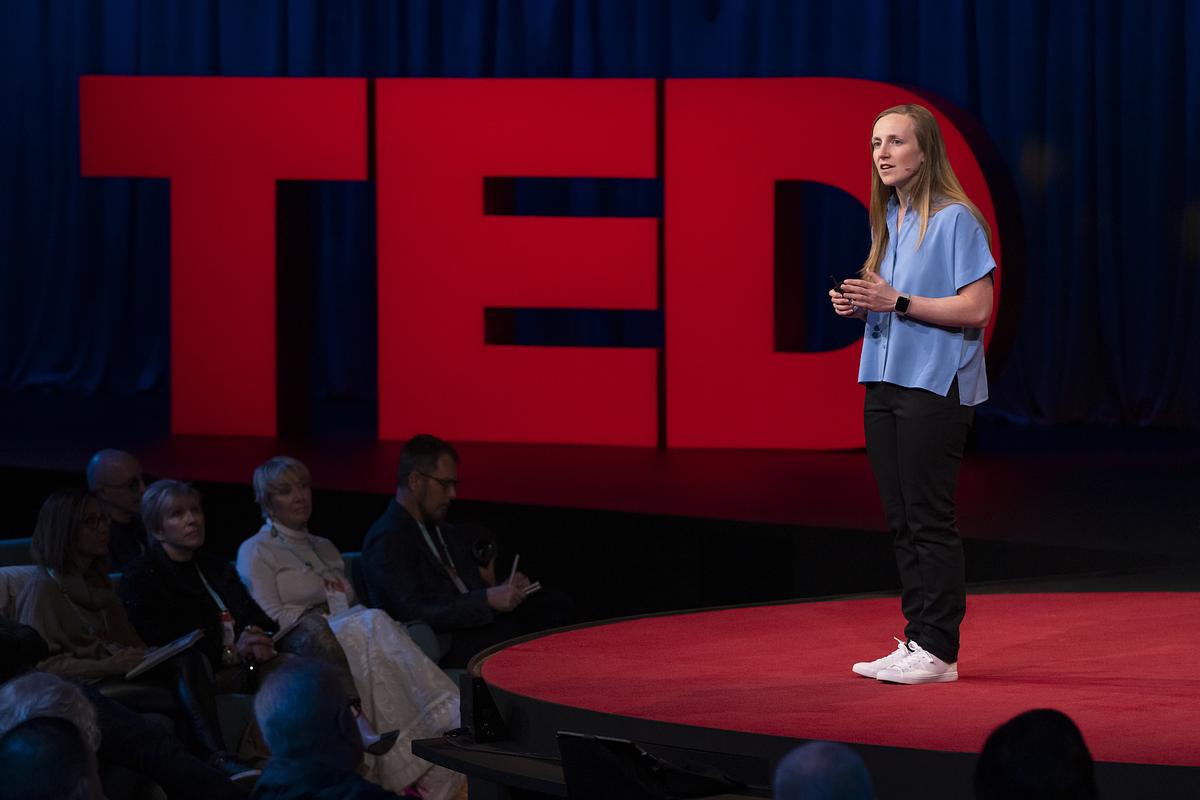
Environmental data scientist Hannah Ritchie speaks at Session 5 of TED2023: Possibility on April 19, 2023, in Vancouver, BC, Canada. (Photo: Ryan Lash / TED)
According to a recent international survey, more than half of young people think humanity is doomed. But environmental data scientist Hannah Ritiche says that far from being the “last generation,” as some climate activists call themselves, today’s youth have the opportunity to be the first generation in human history to achieve true sustainability. For Ritchie, this would mean both protecting our environment and providing a good life for everyone alive today. In the past, improving human lives came with an environmental price tag, but Ritchie says that no longer has to be true. With technological advances, such as the rapid acceleration of solar power, we now have the capacity to improve life globally while also stewarding Earth for future generations. To do so, we must push for zero emissions and frame sustainability as an opportunity, not a sacrifice.
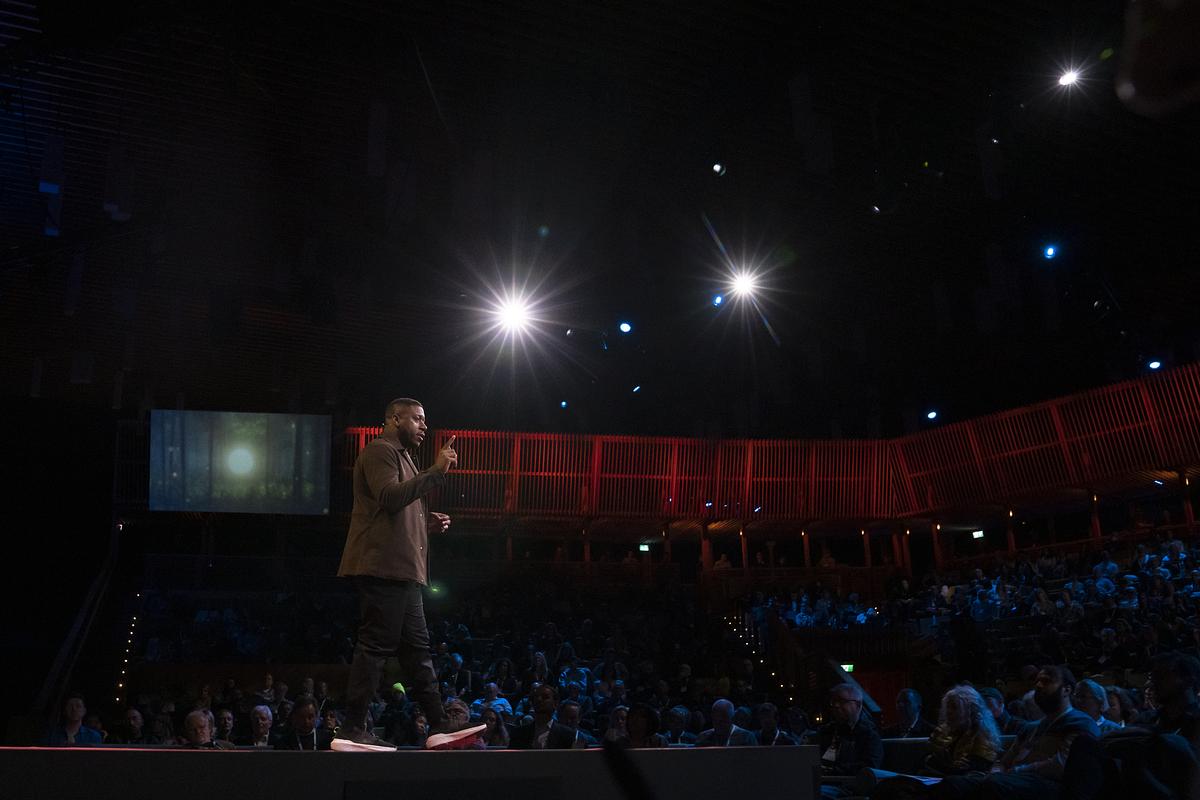
Circular economy builder Garry Cooper speaks at Session 5 of TED2023: Possibility on April 19, 2023, in Vancouver, BC, Canada. (Photo: Jason Redmond / TED)
Cities are a great place to initiate new economic models. Circular economy builder Garry Cooper cites Chicago, for instance, as a place already working to transform its traditional linear economy into a circular one. This means creating a system of sharing resources and repurposing items that are no longer needed, from basic materials to furniture and beyond. To transition any city toward a circular economy, Cooper lays out three main steps: first, establish a digital infrastructure (like universal access to internet) so that all can be involved; second, build a tried-and-true way to operationalize reusing and recycling materials (think Craigslist and Facebook Marketplace, but expanded); and third, incentivize every person and business to participate through smart public policy. Circular economies can create a better future though reinventing economic opportunity, strengthening community ties, uplifting citizens and protecting the climate, says Cooper. “We’re all neighbors, not competitors, not strangers. We need each other and whatever city or town we reside in.”
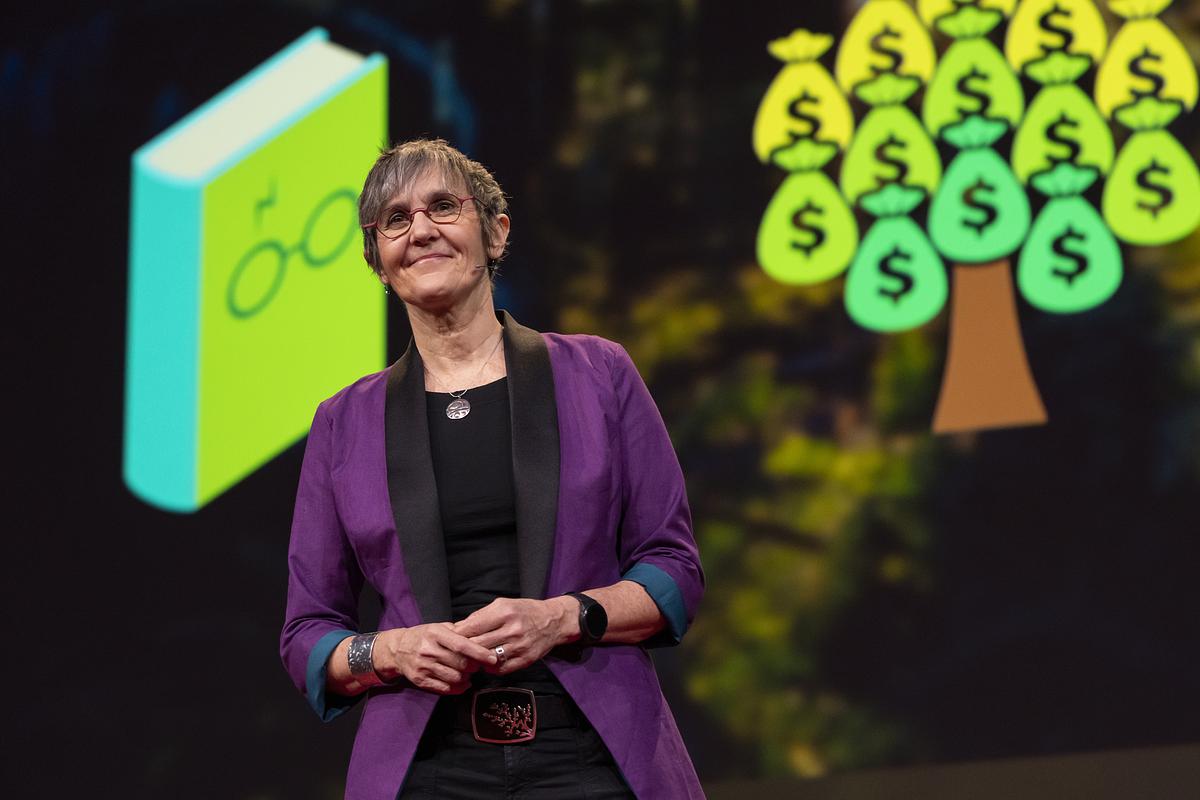
Biodiversity champion and 2023 Audacious Project grantee Nicole Rycroft speaks at Session 5 of TED2023: Possibility on April 19, 2023, in Vancouver, BC, Canada. (Photo: Ryan Lash / TED)
Every year, billions of trees are cut down for the production of paper packaging or fabrics like rayon and viscose. If we’re going to beat climate change, we need to make these supply chains more sustainable, says 2023 Audacious Project grantee and biodiversity champion Nicole Rycroft. Her organization, Canopy, partners with key industry leaders to overhaul their supply chains in favor of next-generation wood pulp alternatives, such as used cotton fabric, microbial cellulose or agricultural residues like leftover wheat straw. With these substitutes, Canopy has already shifted more than 50 percent of global viscose production out of the world’s ancient and endangered forests, setting a transformative precedent for the future of pulp production — and creating a sustainable playbook for other industries in need of reform. “For every sector, there is a more sustainable path forward,” says Rycroft.
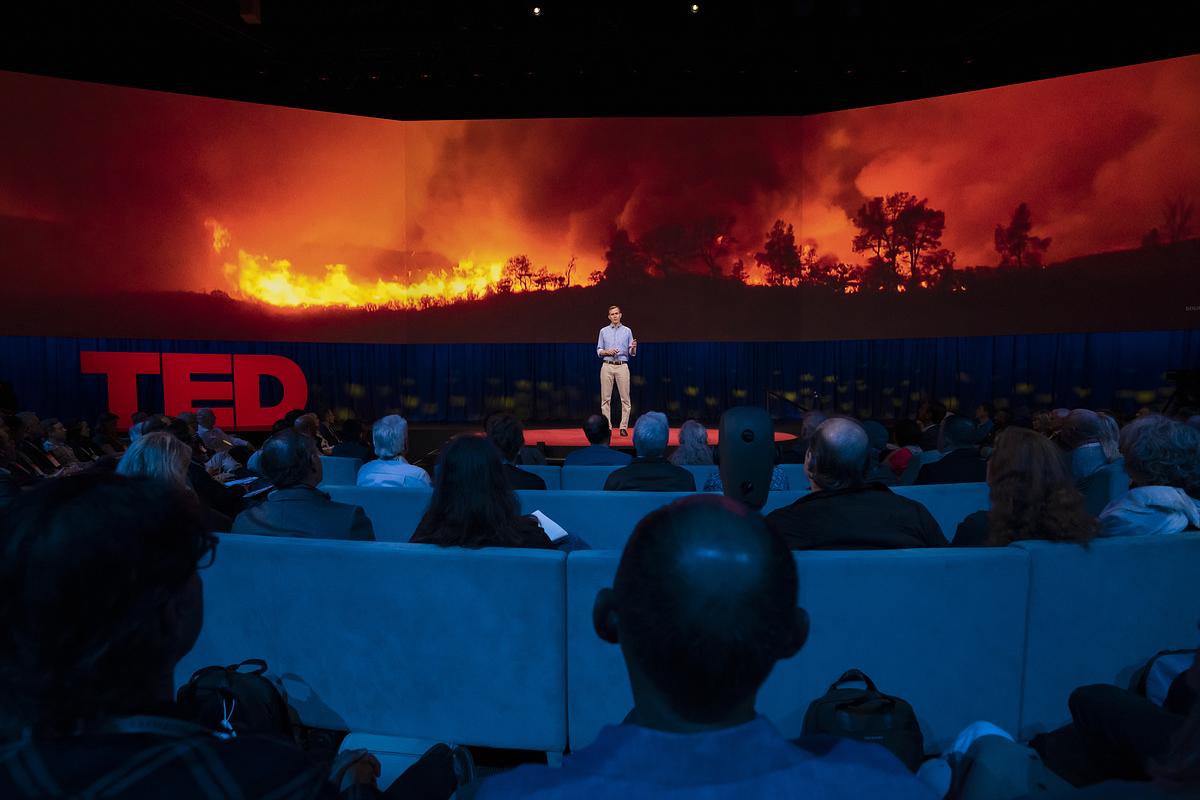
Megafire fighter George T. Whitesides speaks at Session 5 of TED2023: Possibility on April 19, 2023, in Vancouver, BC, Canada. (Photo: Ryan Lash / TED)
Wildfires like those in Santa Rosa in 2017 and Australia in 2020 are a large and growing global challenge — and fire experts say things are likely to get worse before they get better. Billions of dollars are being spent to fight this blazing issue, explains George T. Whitesides, who left a successful aerospace career to take on megafires, or those that burn more than 100,000 acres. Working with experts across disciplines, from firefighters and tribal communities to scientists and policymakers, Whitesides cofounded Megafire Action, an organization dedicated to building fire-adapted communities. He shares three emerging solutions to this alarming problem: (1) build resilient communities that design with fire safety in mind, (2) take measures to control fire spread, like reducing the amount of overgrowth in landscapes, and (3) innovate fire-management technologies that can rapidly detect and put out fires.
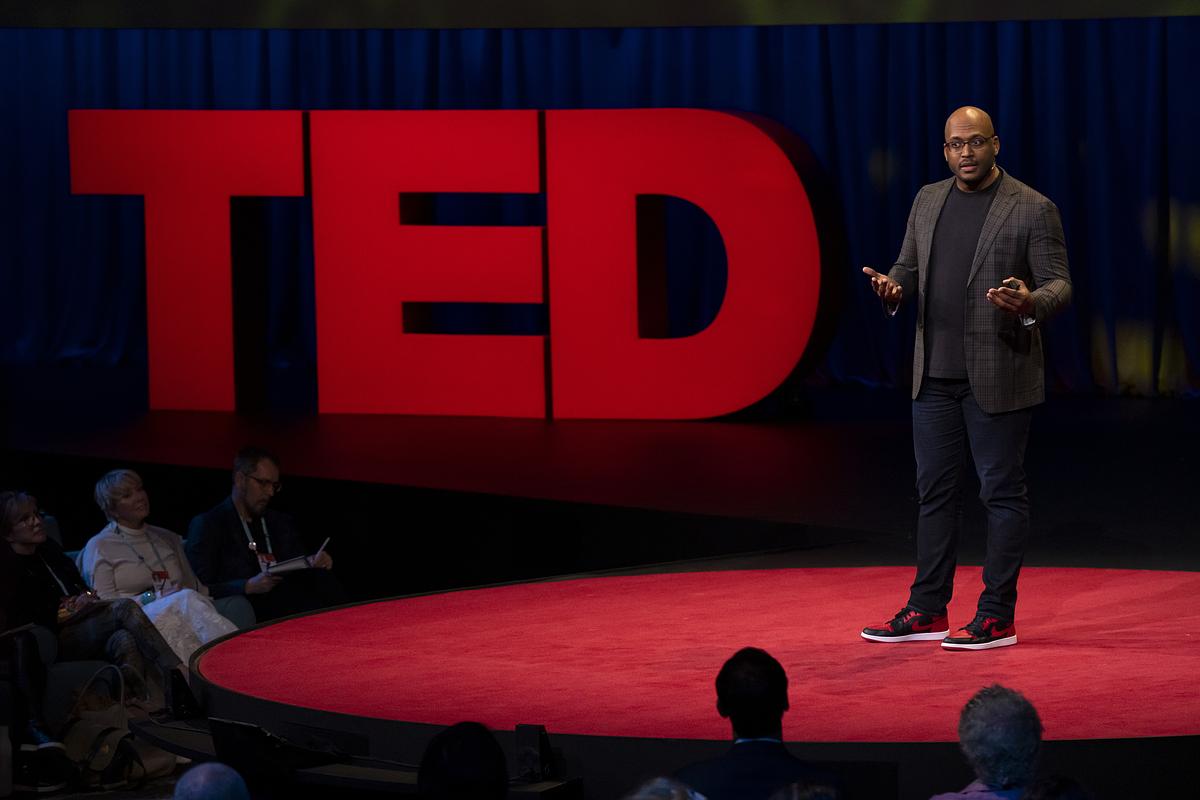
Evolutionary biologist Shane Campbell-Staton speaks at Session 5 of TED2023: Possibility on April 19, 2023, in Vancouver, BC, Canada. (Photo: Ryan Lash / TED)
We tend to think of evolution as a slow, gradual process playing out over thousands or millions of years. But evolutionary biologist Shane Campbell-Staton shows how evolution is now rapidly reshaping life in response to the world humanity has built. Small lizards in Puerto Rico have evolved longer limbs and larger toe pads to use buildings as perches, for example, while the genome of wolves living in the Chernobyl exclusion zone appears to be changing in response to decades of radiation exposure. “We live in a time when we are literally etching our decisions into the DNA of the species that live in, on and around us,” Campbell-Staton says. Now the question is: When we consider the story that we’re writing, what do we want our chapter in this grand book of life to say?
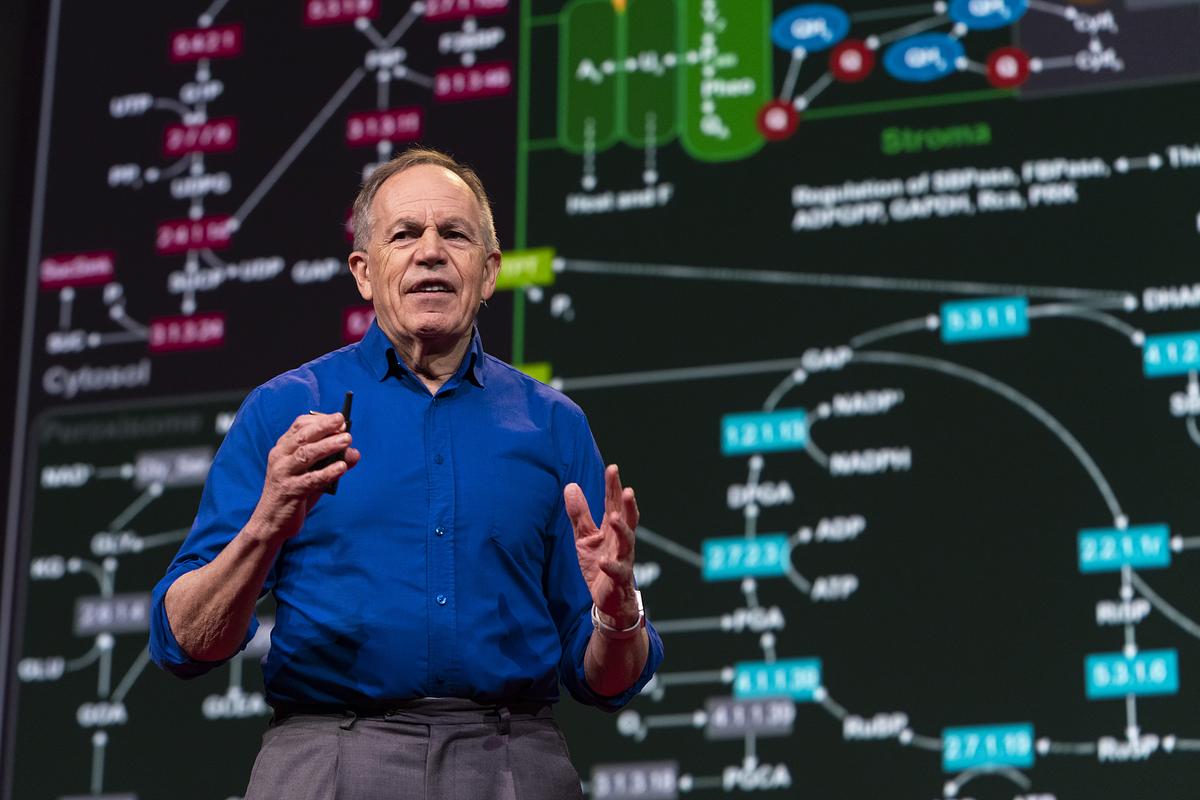
Crop sustainability scientist Steve Long speaks at Session 5 of TED2023: Possibility on April 19, 2023, in Vancouver, BC, Canada. (Photo: Ryan Lash / TED)
Photosynthesis is one of the most important processes on the planet: it helps produce the air we need to survive. For more than a decade, crop sustainability scientist Steve Long has used genetic simulations and experimental farms to make this process more efficient. But why haven’t millions of years of evolution already optimized photosynthesis? Because our crops did not evolve to thrive in our now carbon-rich atmosphere, nor can they adjust to light fluctuations in densely cultivated fields, Long says. His team has genetically optimized crops like soybean to account for these human-driven changes, sometimes increasing yields by more than 20 percent. By boosting photosynthesis, Long hopes we can start a 21st-century green revolution: improving food access for the 10 percent of humanity experiencing food insufficiency — while also reducing carbon emissions.
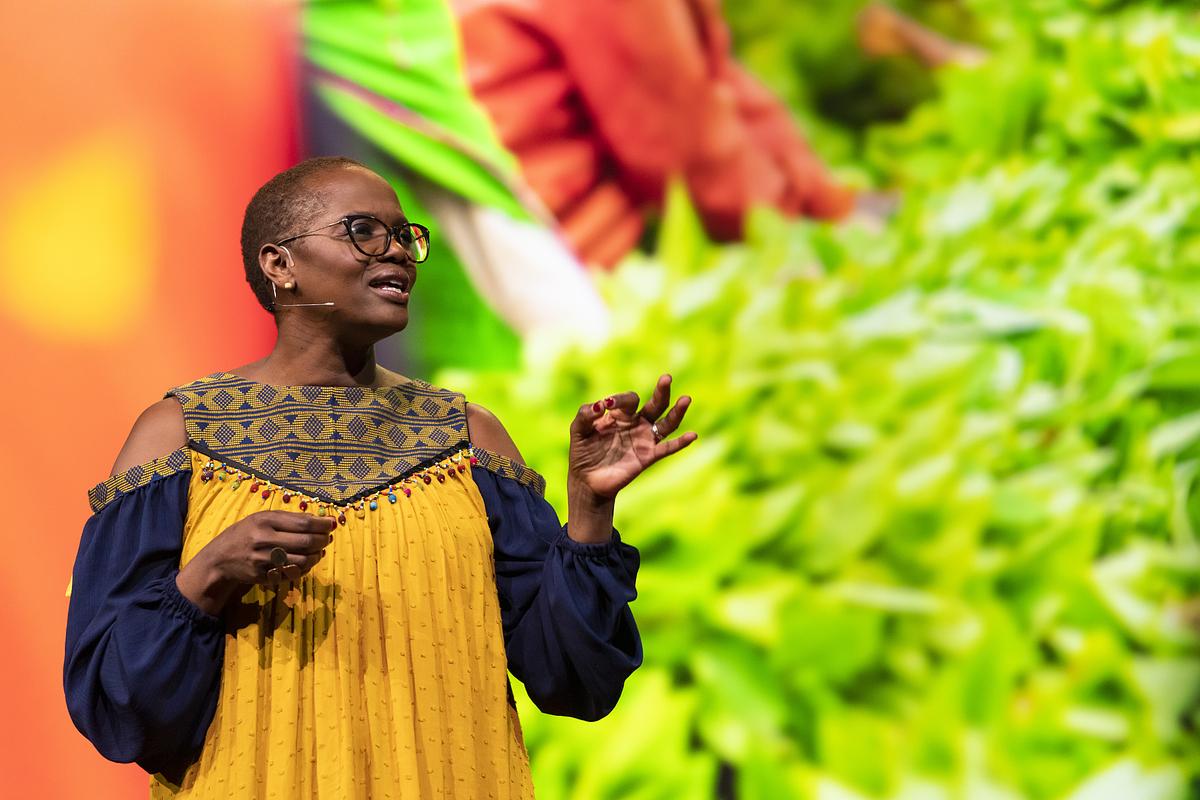
Environmental restoration champion and 2023 Audacious Project grantee Wanjira Mathai speaks at Session 5 of TED2023: Possibility on April 19, 2023, in Vancouver, BC, Canada. (Photo: Ryan Lash / TED)
2023 Audacious Project grantee Wanjiri Mathai recalls that her mother, Nobel laureate and Green Belt Movement founder Wangari Maathai, used to tell her: “Nature is the source of everything good.” Today, the lush landscapes Wangari Maathai knew in Kenya have been denuded and degraded; overall, 60 percent of the soil in Africa is unproductive. But, relying on local leadership and local wisdom, a continent-wide coalition of stakeholders and entrepreneurs is working to revitalize Africa’s land. This coalition, AFR100, has an ambitious goal: the restoration of 100 million hectares on the continent by 2030. By re-greening Africa, Mathai said, AFR100 can help secure livelihoods, mitigate climate change and secure communities against the worst effects of our changing climate.
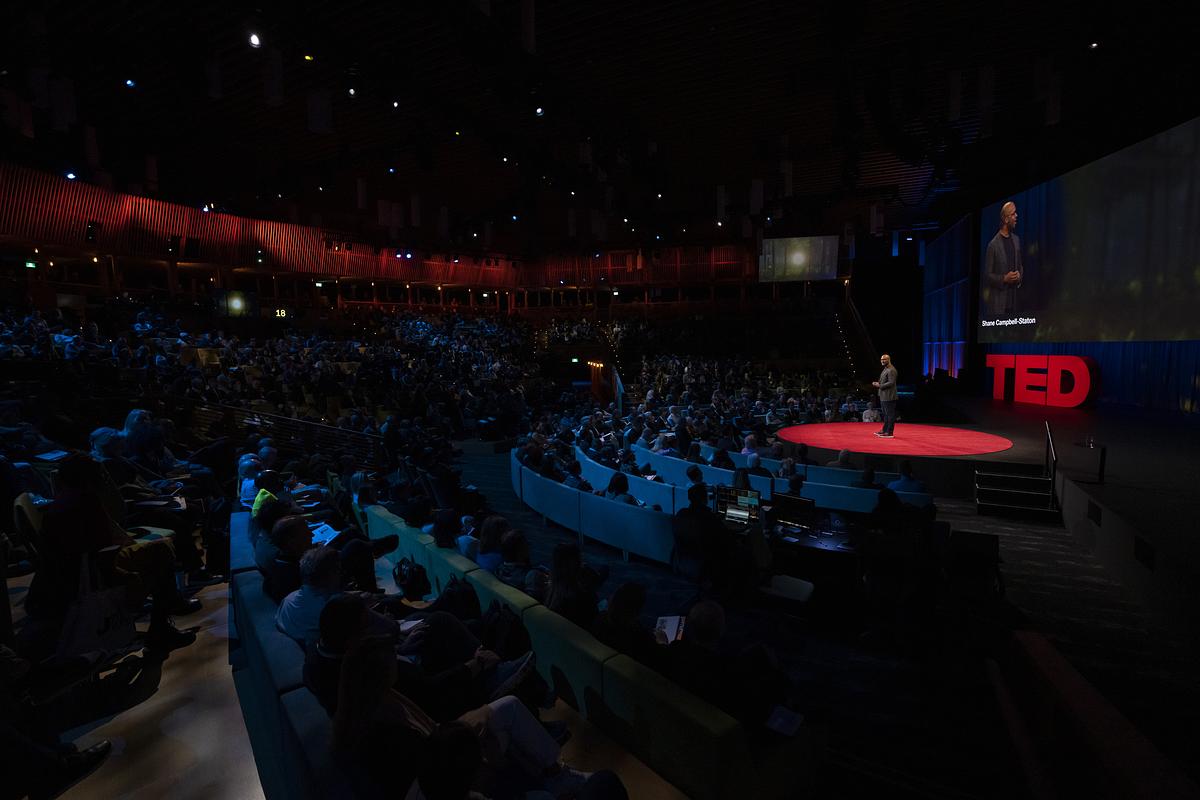
The TED Theater during Session 5 of TED2023: Possibility on April 19, 2023, in Vancouver, BC, Canada. (Photo: Ryan Lash / TED)